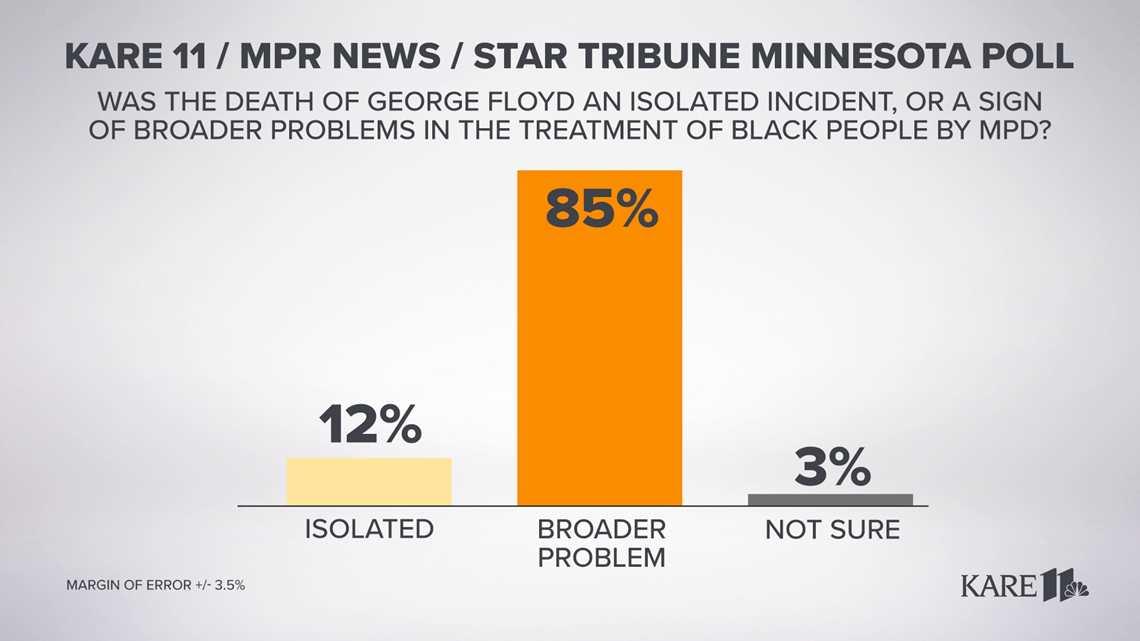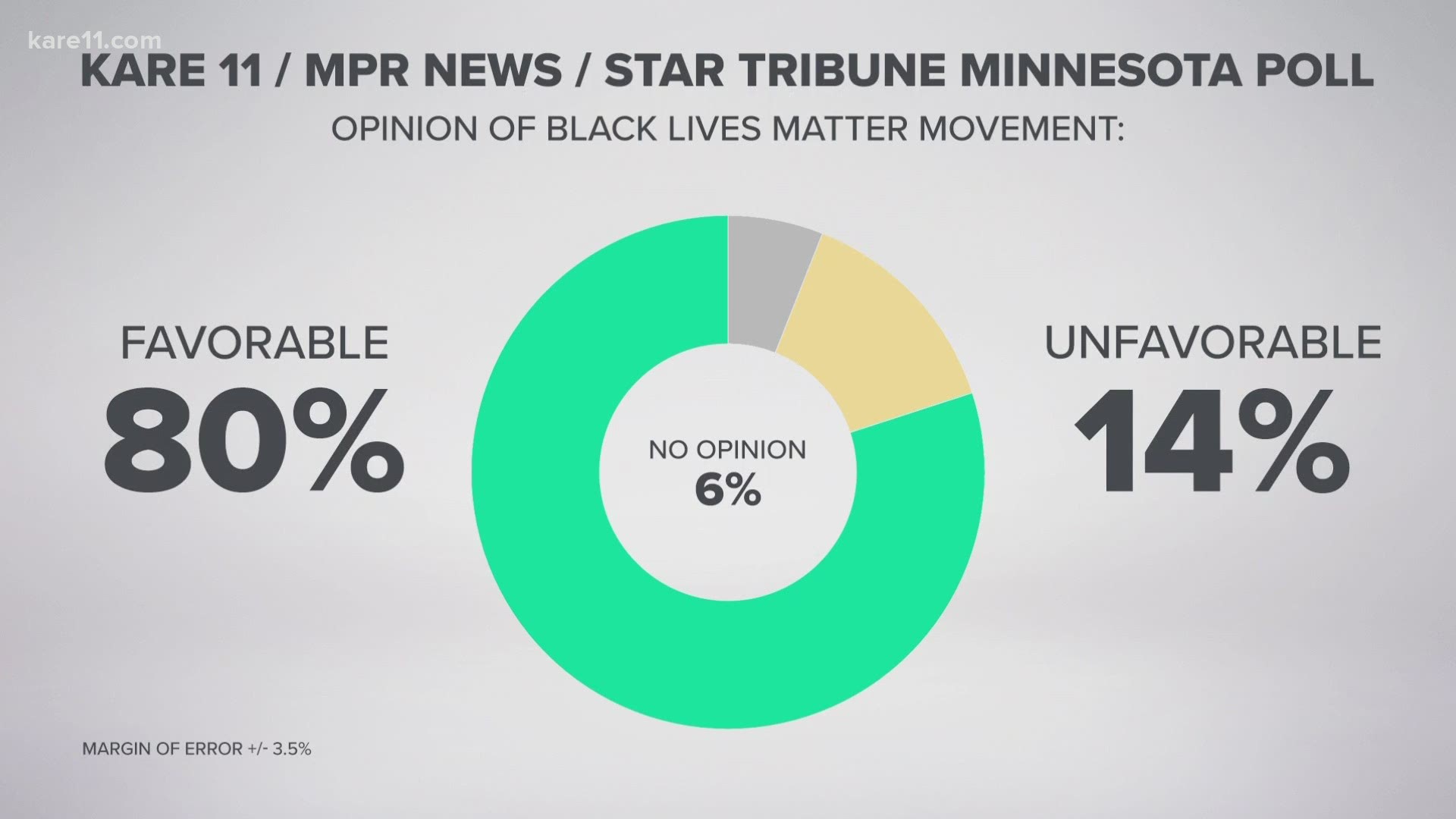From large murals on buildings to small signs plastered in yards and windows, Black Lives Matter really does have strong support across Minneapolis. According to the new KARE 11/MPR News/Star Tribune Minnesota Poll, 80% of Minneapolis residents have a favorable opinion of the Black Lives Matter Movement. Just 14% of respondents reported an unfavorable opinion, while 6% held no opinion.
"The movement was needed," said Latoya Hill-Cox, one of 800 registered voters who took part in the poll.
Hill-Cox says she believes many residents, like herself, were able to support the Black Lives Matter message, while separating it from the destruction caused by some supporters following the death of George Floyd.
"The riots were just too much," she said. "I do agree with the cause though. I completely agree with the cause, and it's not just about black lives."
The Black Lives Matter movement received broad support among residents of all age groups, races and education levels. The only exception was Minneapolis republicans (33% favorable vs 56% unfavorable with 11% reporting no opinion).


Not just about George Floyd
According to the poll, just 12% of respondents view George Floyd's death as an isolated incident, while 85% view it as a sign of broader problems in the treatment of Black people by Minneapolis police. That view is shared by the majority in every demographic, including republicans (56%) and white residents (88%).
"We didn't talk about it before," said Tyler Rice, who says the issue was often looked at from afar by his white friends and family members until now. "You know, apart from kind of just passing comments there wasn't ever really substantive conversation. At least in the areas where I was. That changed with George Floyd."
"I was surprised by the outcry of all sorts of people," said Rashon Lewis, who is Black, but found himself standing next to people of all races during protests. "White, Black, brown, whatever... that came out to say, you know, enough's enough. What's going on here?"
Though there are many disagreements over the best solutions, some say there is hope in such wide recognition.
"I think recognizing the situation is definitely the first step to moving forward," Hill-Cox said. "If you don't recognize what is wrong, how can you fix it?"

